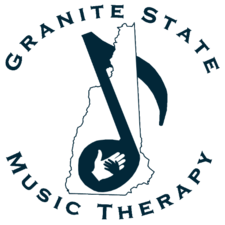Juneteenth: A Journey of Freedom, Music, and Resilience
The History
On January 1st 1863, President Abraham Lincoln issued the Emancipation Proclamation. This was the date that went down in history as the day that freed the slaves. However, not all the slaves could be freed. It could not immediately be implemented in states still under confederate control. So, for over 250,000 enslaved black people in Texas, their freedom did not come until over 2 years later, when troops arrived with an executive decree. This occurred on June 19th, 1865, which became known as Juneteenth.
When I started doing research into the holiday, and the significance behind it, what I couldn’t get over is the time that lapsed. It must have felt like such a long time to wait. Seeing other slaves being freed, and wondering if it would ever be your turn. Juneteenth not only signifies freedom, it also signifies holding out hope when it is difficult to see a reason to.
For more information on the history of Juneteenth from the National Museum of African American History and Culture, please visit: The Historical Legacy of Juneteenth
For a comprehensive Juneteenth reading list, please visit: The Juneteenth Reading List
The Impact of Music
Music and dance were a very important part of African culture. When Africans were brought to America as slaves, they used music to keep their culture alive in the best way they knew how. Music was for celebration, as well as a way to cope with the struggles they faced. Music was how they got through their work on the cotton fields, how they processed their pain and got through the day. One of the many ways through which slaves experienced oppression was the restriction placed on their ability to read and write. Literacy among slaves was generally discouraged by slaveholders. Many slave owners feared that literacy would empower slaves, leading to ideas of freedom and rebellion. As a result, literacy was often actively suppressed in various ways, such as through laws prohibiting education for slaves or through punishment for those caught attempting to learn to read or write. Because of these restrictions, most of the traditional African folk songs were passed down orally. And since nothing was written down, these lyrics changed often. This was why call and response style songs were so effective, because even if you didn’t have the words written out, you could still repeat what was said. These melodies were also a way to communicate with other slaves on the fields, and a way to connect across distances, despite the limitations they faced in gathering together.
For more information about the roots of African music and the influence on American Music please visit: Roots of African American Music
For more information about the importance of music and movement throughout the history of African Americans:
Music for Juneteenth
There are many songs that celebrate Juneteenth. Among these songs are original spirituals that were sung at the first Jubilee in 1866 such as, “Go Down Moses” and “Many Thousands Gone.” Additionally, several songs emerged during the Civil Rights movement, such as James Brown’s “Say it Loud-I’m Black and Proud” and “Power to the People” by Curtis Mayfield. These songs not only capture the struggle and pain inherent to fighting for social justice, but also the strength and resilience of the human spirit.
Here are resources to find Juneteenth Playlists:
Author: Jenni Chute, MA, MT-BC
Editor: Cassadi Kulak, MT-BC






